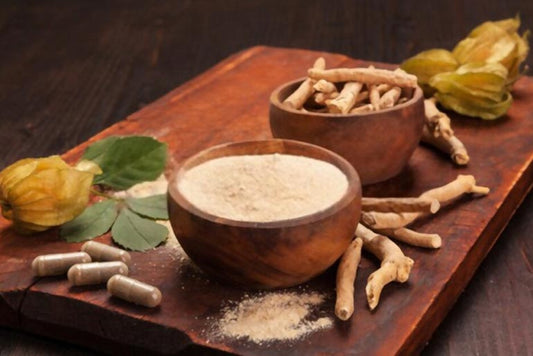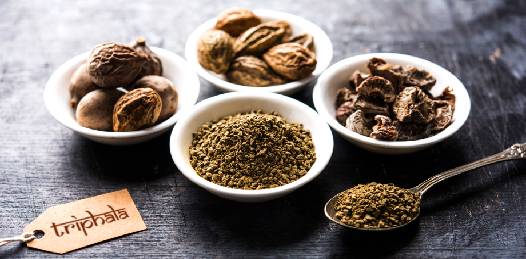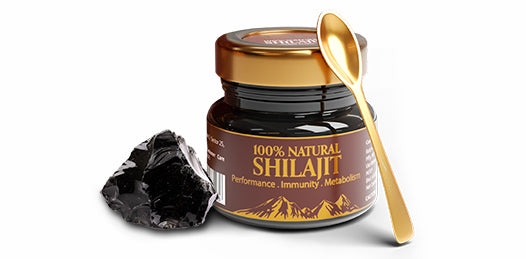While Diwali is a perfect time for fun and recreation, it may prove otherwise if you have allergies. As per the data shared by doctors every year, patients visiting hospitals with breathing difficulties have increased during the Diwali season.
It includes patients with Asthma attacks, exacerbated episodes of COPD(Chronic Obstructive Lung Disorder) and RADS (Reactive Airways Dysfunction Syndrome), all occurring due to pollutants and toxins in the air.
What causes breathing problems during Diwali?
Every year, the presence of sulphur dioxide increases up to 200 times the safety levels as prescribed by WHO. Apart from Sulphur dioxide, toxic gases like carbon monoxide, manganese, and cadmium also rise in the atmosphere, causing several respiratory problems.
It takes about 3-4 months to dissipate these gases from the atmosphere completely. And one can succumb to breathing issues for these four months.
Who are the most affected?
- People who work outdoors - People who work outdoors are highly exposed to the gases and pollutants in the air and are highly susceptible to suffering from breathing issues.
- Children - The respiratory tract is not fully developed, so they may be affected due to pollutants. Also, children while playing outdoors are exposed to dust and gases in the air.
- Elderly People - Elders have a weakened immune system. This makes them highly susceptible to the health hazards caused by smog. Exposure to pollutants might even worsen other pre-existing conditions.
- People with respiratory illnesses - People who already have asthma or other respiratory conditions have a higher chance of getting ill during Diwali. The pollutants irritate the respiratory tract and worsen the situation.
What are the symptoms faced due to pollutants?
Exposure to pollutants and toxic gases causes mild to severe symptoms. Following are the range of symptoms experienced:
- Shortness of breath
- Sneezing, especially in the morning or just after getting out of the house.
- Tightness or heaviness in the chest
- Wheezing
- Runny nose
- Watery eyes
- Aggravation in the symptoms of chronic respiratory illnesses.
How to reduce air pollution during Diwali?
Say No to Crackers
Although bursting crackers is not the only cause of respiratory disorders, one should understand that it contributes to a significant part of the problem.
Just like we have switched to using organic colours during Holi and making idols with clay during Ganesh Chaturti, one can deploy sustainable solutions.
- Use of Diyas. Lighting the house together.
- Lighting Wish lanterns.
- Burst green crackers. Green crackers are eco friendly and cause only 50% of the pollution compared to the regular ones.
- Reduce the number of crackers that you intend to burst by 50%.
- Stick to the two-hour window that the government allows for bursting crackers.
- Some movements and slogans like "say no to crackers" motivate people to celebrate a green and pollution-free Diwali.
While discussing the aim of Ayurvedic treatment, Acharya Charaka says,
"Swasthasya Swaasthya Rakshanam", which means preventing illnesses in the primary purpose of Ayurveda.
How to prevent illnesses, as explained by Ayurveda?
- Following the daily and seasonal regimens as explained in the Ayurvedic texts improves immunity and gives resistance to diseases.
- The intake of herbs like Trikatu, Triphala, Ashwagandha, Chyavanaprash improves immunity and prevents many respiratory and digestive disorders.
- According to Ayurveda, every disease arises out of a diminished digestive fire(Agni). Hence, keeping digestion at an optimum level becomes very important in the prevention of diseases.
- Ayurvedic Rasayana therapy is a process of rejuvenating the body with herbs to improve longevity.
- Apart from all of these, one should also prevent exposure to toxic gases, bursting crackers and burning of garbage to reduce atmospheric pollution.
Breathing exercises to improve lung capacity
Breathing exercises can be practised by all, especially those prone to allergies and respiratory problems.
- Pursed lip breathing: This is very effective in COPD patients. Air inhaled through the nose is exhaled through the mouth, just like you blow candles.
- Deep breathing: Deep inhalation and holding of breath followed by deep exhalation. This improves lung capacity.
- Anulom Vilom Pranayam: This is a type of yogic deep breathing technique but with alternate nostrils. The air inhaled through the left nostril is exhaled through the right and vice versa.
- Kapal Bhati: This is a type of forceful breathing technique and is effective in clearing the airways. Kapal Bhati also improves metabolism.
How to detox lungs?
The term lung detox with some detox waters is a myth. Detoxification of the lung happens over a while by following some good practices.
- Quit smoking
- Use an air purifier indoors.
- Practise breathing exercises.
- Eliminate artificial scents and fragrances.
- Take a lot of vegetables and fruits to increase immunity.
- Go for a Vaman Karma. Vaman is a Panchakarma procedure where the excess Kapha (mucus) from the lung is drawn out by inducing vomiting with some herbs. Vamana karma should be done under the supervision of an Ayurvedic physician.
Anti-allergic diet
An anti-allergic diet eliminates inflammation from the body. It also helps to alleviate seasonal allergy symptoms. Inclusion of some essential food items can help you with allergies:
-
Ginger - Ayurveda recommends taking ginger in both dry and fresh forms. Ginger is an antihistamine that prevents allergies. It can prevent and treat symptoms like sore throat, cold, cough, rhinitis and digestive problems.
Avoid ginger if you have bleeding disorders or heading to surgery. -
Vitamin C - Vitamin C improves immunity and also prevents allergies. Amla (Emblica officinale) is the best source of Vitamin C. Amla is known to have all five tastes except Salt (like Sweet, Sour, Bitter, Astringent and pungent). Amla is also the best rejuvenator and can be taken regularly. Include it in your chutneys, pickles and curries for a sour taste.
Lemon, Oranges, Kiwis are also good sources of Vitamin C and can be taken regularly. - Turmeric - Curcumin in turmeric is known to be the best anti-inflammatory and antiseptic ingredient. 1/4-1/2 tsp of turmeric per day will keep all your allergic problems at bay. External application of turmeric on rashes is also highly effective. Turmeric tea or Turmeric milk can be taken daily to alleviate allergies.
- Holy Basil - Oscimum sanctum, commonly available in India, is one of the best herbs against allergies. Tulsi can be taken by boiling with water as a tea, or the juice can be taken with honey. Tulsi leaves can be boiled, and the steam can be inhaled to prevent blockage in the airways.
-
Honey - Honey is not only a healthy alternative to sugar but also known for its anti-allergic properties. Ayurveda explains different types of honey-based on the variety of the bee that collects the nectar.
Honey being a mixture of nectar from various flowers, is known to have immune-boosting properties. Honey reduces Kapha dosha according to Ayurveda.
Measures to reduce breathing issues during Diwali
- Use of air filters indoors.
- Keep your doors and windows shut when there is pollution in the atmosphere.
- Strictly wear masks when you step out of the house.
- Some indoor plants like Aloe vera, Pothos, snake plant and Areca palm purify the air indoors and produces fresh oxygen inside your homes.
Remedies to control allergies
1.Neti kriya:
Practising Neti Karma with warm saline water is beneficial for relieving nasal congestion and allergies. To use a Neti pot,
- Stand straight and bend yourself horizontally.
- Pour water through the upper nostril so that the water drains through the lower nostril.
- Breathe through your mouth throughout the process.
- You can repeat this process daily or once a week.
- Nasya Karma:
The use of Anu Tailam for Nasya reduces allergies and clears any particulates irritating the nasal tract. Nasya is an Ayurvedic treatment of instilling medicated oil into the nostrils.
How to do Nasya:
- Nasya has to be done in the early morning on an empty stomach.
- Lie on your back with your head tilted and nose upwards. 2-3 drops of Anu tailam has to be instilled into both the nostrils.
- Massage the nasal bridge and forehead well using mild pressure.
- Gargle with warm water and spit off any residual oil coming through the mouth.
- Golden milk
The very modernized Turmeric latte or Golden milk has immense benefits when it comes to alleviating allergies.
How to prepare Turmeric milk?
Ingredients :
- A glass of milk
- Turmeric powder- 1/8 tsp
- Pepper powder - 1/8 tsp
- Nutmeg powder - 1 pinch (optional)
- Cinnamon powder - 1 pinch (optional)
- Dry ginger powder - 1 pinch (optional)
- Jaggery - 1/2 tsp (optional)
Method:
Boil milk along with all the ingredients for 3-4 minutes until it starts boiling. Strain the mixture and take it before bedtime.
- People with diabetes should take this without jaggery.
- People with sleep disturbances can take turmeric milk with Nutmeg powder.
- If you have PCOS or want to lose weight, take Turmeric milk with Cinnamon powder.
- The addition of dry ginger powder help improves digestion.
- You can also dilute milk with water if you have trouble digesting milk at night.
- HaridraKhand: Haridra Khand is an Ayurvedic formulation that contains turmeric, Pepper, Pippali, Dry Ginger, Cinnamon, Cardamom, Vidang, Triphala and Nagarmotha. It is available in granular or powder form. Haridra Khand taken with milk is very effective to control allergies.
- Steam- Inhalation of steam is very effective to clear the airways and nasal passages. Steam inhalation also reduces the inflammation of the sinuses.
While Diwali is time for fun and festivities, let us make it enjoyable for the sick and elderly by celebrating a Green Diwali! We, at TAC wish you a happy and prosperous Diwali 2021.











